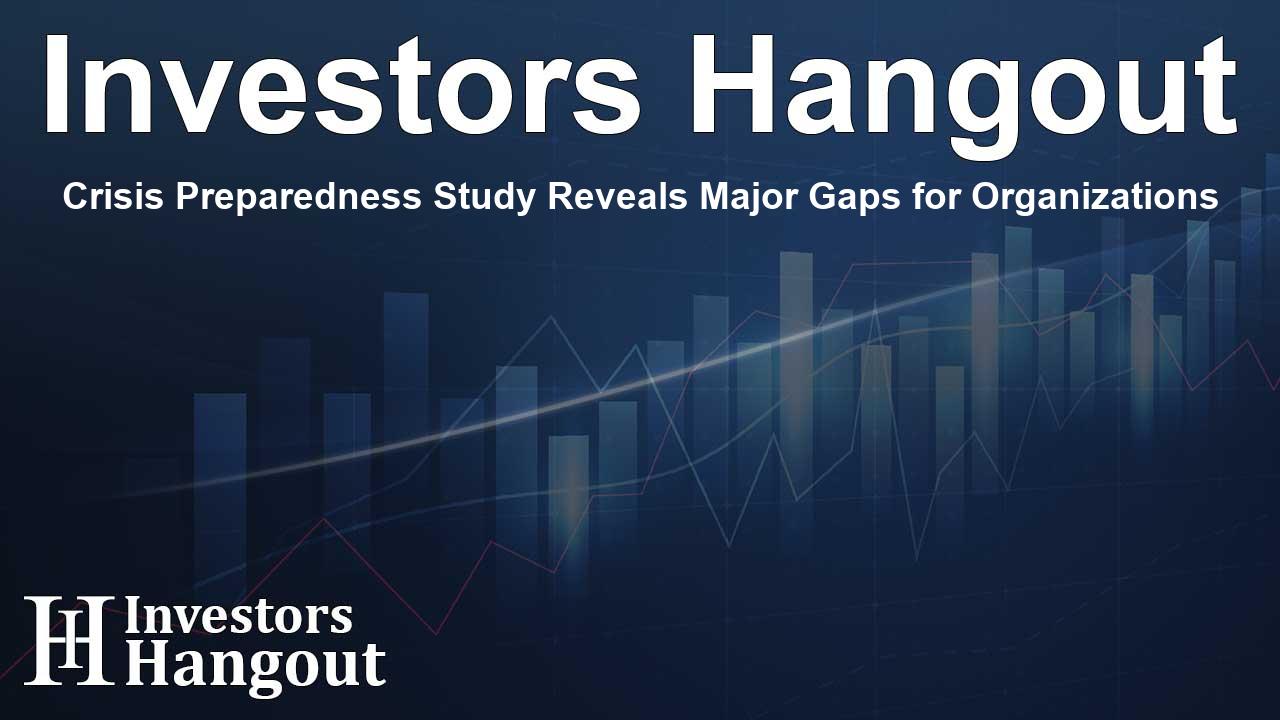Crisis Preparedness Study Reveals Major Gaps for Organizations

Organizations Struggle with Crisis Preparedness
Organizations often find themselves underprepared for crises that pose significant risks to their operations. A recent study funded by FTI Consulting highlights a concerning trend: many companies struggle to learn from previous crises, which is critical for improving future responses.
The Survey Insights
In this research, Economist Impact gathered insights from over 600 general counsels (GCs) across various regions. The survey spanned different geographical areas, including North America, Europe, the Middle East and Africa (EMEA), and Asia Pacific. Alarmingly, almost 30% of respondents identified reputational and operational crises among the top three most significant risks, yet these are also the crises their organizations feel least equipped to manage.
Failure to Learn from Past Events
More than two-thirds of the participants indicated that their organizations do not effectively incorporate learnings from past crisis scenarios into their current training regimens. This gap in crisis preparedness can leave companies vulnerable to unpredictable events, particularly in an environment marked by heightened scrutiny over membership data, geopolitical tensions, and technology vulnerabilities.
The Role of General Counsels
As crises become more frequent, the role of the general counsel is evolving. Many GCs—around 60% of those surveyed—reported an increase in their involvement with crisis management strategies compared to previous years. However, this active engagement is primarily seen in North America and EMEA, where a notable percentage of GCs focus more on broader business continuity and contingency planning.
Geographical Disparities in Engagement
The study highlighted a fascinating disparity: countries within Asia Pacific lag behind their counterparts in North America and EMEA regarding GCs' involvement in crisis preparedness. This difference suggests a need for organizations worldwide to adopt a more uniform approach to crisis response and strategic planning.
Challenges in Crisis Management Technology
Despite the advancing technology landscape, the survey revealed that over half of the organizations do not utilize AI or machine learning tools for crisis impact analysis. This technological gap can significantly hinder real-time assessments of crises and limit a company's ability to respond effectively. Additionally, a substantial number of GCs identified a lack of technical skills as a barrier to effective crisis preparation.
Need for Cross-Functional Collaboration
Furthermore, nearly 70% of surveyed organizations have not established a dedicated, cross-functional crisis response team or pre-selected external advisors. This lack of preparedness may significantly delay the response and recovery processes during critical situations.
Prioritizing Crisis Preparedness
In light of the survey's findings, GCs identified key priorities for improving their organizations' readiness for crises. These priorities include fostering more robust crisis response teams, increasing investments in crisis management resources, and utilizing advanced technologies to monitor threats and analyze their potential impacts.
Industry-Specific Insights
The survey also gathered insights into how different sectors approach crisis management. Notably, GCs in the financial services, banking, and insurance sectors tend to expand their early-warning monitoring efforts more than their peers in other sectors. Meanwhile, manufacturing GCs are generally more engaged in managing crisis impacts compared to those in industries like healthcare and retail.
Conclusion: A Call to Action
The findings from this survey reveal a pressing need for organizations to take decisive actions in crisis preparedness. Leadership must recognize vital lessons from past experiences to bolster resilience against future crises. By leveraging the insights provided by GCs, companies can become more adept at navigating turbulent waters and ensure they are better prepared for whatever challenges lie ahead.
Frequently Asked Questions
What was the primary goal of the survey?
The survey aimed to assess how well organizations are prepared for crises and the evolving role of general counsels in managing those crises.
Which regions reported higher engagement in crisis management?
North America and EMEA regions reported higher engagement levels from general counsels compared to the Asia Pacific region.
What percentage of surveyed organizations lack a crisis response team?
Nearly 70% of the surveyed organizations do not have a dedicated cross-functional crisis response team.
How many respondents reported not using AI or machine learning for crisis management?
More than half of the surveyed organizations are not utilizing AI or machine learning tools for crisis impact assessments.
What are some key priorities for improving crisis preparedness?
Key priorities include establishing crisis response teams, increasing funding for crisis preparation, and adopting advanced monitoring technologies.
About The Author
Contact Caleb Price privately here. Or send an email with ATTN: Caleb Price as the subject to contact@investorshangout.com.
About Investors Hangout
Investors Hangout is a leading online stock forum for financial discussion and learning, offering a wide range of free tools and resources. It draws in traders of all levels, who exchange market knowledge, investigate trading tactics, and keep an eye on industry developments in real time. Featuring financial articles, stock message boards, quotes, charts, company profiles, and live news updates. Through cooperative learning and a wealth of informational resources, it helps users from novices creating their first portfolios to experts honing their techniques. Join Investors Hangout today: https://investorshangout.com/
The content of this article is based on factual, publicly available information and does not represent legal, financial, or investment advice. Investors Hangout does not offer financial advice, and the author is not a licensed financial advisor. Consult a qualified advisor before making any financial or investment decisions based on this article. This article should not be considered advice to purchase, sell, or hold any securities or other investments. If any of the material provided here is inaccurate, please contact us for corrections.
